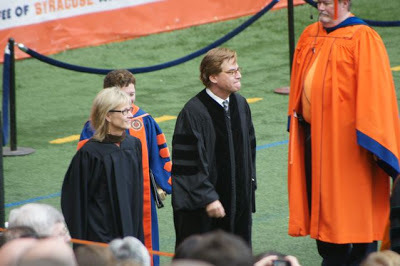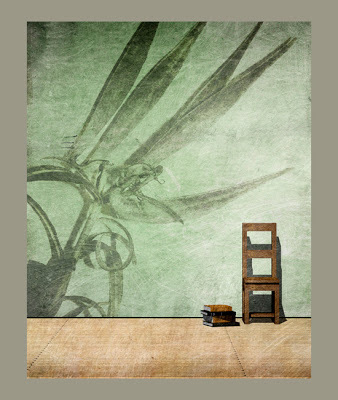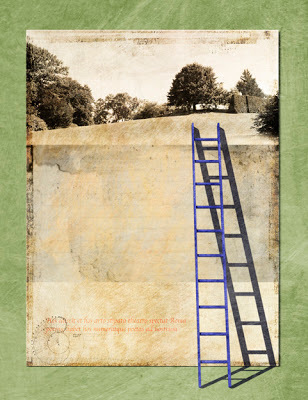Beth Kephart's Blog, page 186
May 14, 2012
tulips (and books) in May

During the next several weeks, I will be reading books that have accumulated in these parts for, well, years (some of them). Sometimes I will offer my thoughts here. Sometimes I will keep them to myself. And every single time I pick up a new book it will feel (I know this, from all my decades of reading) that I have never read a book before. What is a book? What makes a book? What is not a book? I ask myself these questions every time I take one of those "things" into my hands.
I'll report from the trenches, but only when I have something to say.




Published on May 14, 2012 16:27
The sun sets on Philadelphia


Last Thursday evening, I hopped a train and made my way to Philadelphia's 12th and Market Streets, then rode the elevator all the way up to the top floor of what was once known as The PSFS Building. (I will always think of this building that way.) We were there to celebrate Buzz Bissinger's new book, Father's Day (I wrote about how much I loved this book here), and to support the Spells Writing Lab, a non-profit organization that (in its words) "develops the creative and expository writing abilities of school-age
children through free, fun, and imaginative writing programs and teacher
development opportunities."
It was good to see Buzz after too many years, to at long last meet his big-hearted son, Zach, and to make a new friend in a young social media whiz named Staci Bender, who created Slice Communications. It was good, too, to watch the sun set over the city I love. To the east, the Delaware River and New Jersey. To the west, William Penn and the Schuylkill River. These photographs were taken through the bend of window glass just a minute apart. How full of character the skies were. How lovely the occasion.




Published on May 14, 2012 05:05
May 13, 2012
Home (on graduation and the wisdom of Aaron Sorkin)



It will take me a long time to process the beauty of these past three days. Tonight, arriving home, my camera full of images forever blurred from the shaking of my hands, I want only to thank those who joined us to celebrate our son's graduation from a school he has loved. I want to thank my friends, who have written and sent cards. I want, too, to thank (in that odd, stranger's way of thanking) Aaron Sorkin, who spoke with such eloquence at the ceremony, such heart and honesty. There is a kind of intelligence that doesn't take itself for granted. There are words that are not just crafted but felt. Aaron Sorkin argued for a certain kind of transcendence today. He was the perfect speaker for an emotional day.
We are grateful.
I am grateful.




Published on May 13, 2012 17:14
May 11, 2012
on the dignity, intelligence, and craft of Patricia McCormick

A few years ago, at the invitation of Alessandra Balzer of Balzer + Bray (Harper Collins Children's Books), I joined a table of remarkable young adult writers and advocates in a famed Philadelphia restaurant. Chris Crutcher sat to my left, Patricia McCormick to my right. I was, of course, lucky.
But only lately, reading CUT and SOLD, two of McCormick's rightly beloved books, have I realized just how lucky I was. Patricia McCormick is—I'll use the word—a writer. A writer with a moral heart and a social conscious. A writer who has taken on subjects like cutting and the horrors of sex slavery, not to sensationalize, but to teach, not to exploit, but to help the rest of us understand what is truly at stake, what must be fixed. And a writer who boldly experiments with form. A writer of true and beautiful sentences.
There is an elegance to her work, a dignity. There is great intelligence as she unpacks her stories. Everything feels real. Nothing feels forced. There is the bounty of genuine knowing. Listen to this, from the early pages of SOLD, the story of a young girl forced to work at Happiness House. These are the halcyon days. This is before. Lakshmi is poor, and she has a gift for seeing beauty.
At dawn, our hut, perched high on the mountainside, is already torched with sunlight, while the village below remains cloaked in the mountain's long purple shadow until midnight.
By midday, the tawny fields will be dotted with the cheerful dresses of the women, red as the poinsettias that lace the windy footpaths. Napping babies will sway in wicker baskets, and lizards will sun themselves outside their holes.
Like CUT, SOLD never blinks. It doesn't glance away from the hard truths. It doesn't gauze the facts with fairytale. I read both books with my heart in my throat—heartbroken and also awed by McCormick's talent.
Patricia McCormick has a new book due out soon—a book called NEVER FALL DOWN, based on "the true story of an 11-year-old boy who survived the Khmer Rouge by playing music in the Killing Fields." Archbishop Desmond Tutu has called the book "one of the most inspiring and powerful books" he's ever read. Our teens need books like these. And so do we.




Published on May 11, 2012 04:27
Graduation Weekend

This is the glorious S. I. Newhouse School of Public Communications on the Syracuse University campus. Our great thanks to Jeff, my brother, Donna, my sister-in-law, Nora, my mother-in-law, and my two brothers-in-law, Mario and Rodi, for coming from around the world (New York, El Salvador, Dallas, London) to celebrate with us.




Published on May 11, 2012 03:14
May 10, 2012
Writing into the World

"There are few excitements as fine as those first walks at
dawn after a night spent writing.
I remember them still, the filmy lights and chilly smells, the visionary
dignity of empty streets, the uproarious feuding of the birds—and further off
the diesel pounding (which seemed the rivers slow deep heart) of barges pushing
upstream through the Mississippi’s lifting mist. The work of those nightlong sessions is now lost, thank
goodness, but the excitement remains.
There is this thing about
writing, any kind of writing, which makes the hardship and waiting small
cost. I mean the perpetual sense
of promise, of what remains—everything!—to be done."
Terrence Des Pres, Writing into the World [image error]




Published on May 10, 2012 08:06
May 9, 2012
The Trip (a film that had me choking with laughter)
Published on May 09, 2012 19:47
house history: life on an unlanterned street

My work on HANDLING THE TRUTH continues to take me back through time, toward essays written then set aside. Here is one I discovered the other day, a never-published reflection on the house where I live now.
It's been nearly twenty years since we drove down an unlanterned
street, peered up toward the single lit window of a hunched house, and decided
that that house would be ours. We had been living forty-five minutes
away in what seemed another world; it was time to make a change. There were big trees here and skimpy
trees where we had come from.
There was history—the ghosted ruins of an old hotel, the milky blue
fence of the nearby horse show grounds, a certain unevenness of domicile
quality and size that suggested that the people who lived here had made their
own choices and secured their own fates; that they would welcome an artist, a
writer, and a little boy whose eyes shone bright with interior light.
Of course, most everything about the house itself was
broken. The walls were thin. The floors were mere veneers. Some of the radiators hissed and some
were stony, stingy, silent. The
overhead ceiling fans rattled when they churned the heavy summer air, and in
the kitchen a barnyard full of maroon roosters was peeling off the walls. Termites had had their say, though we
wouldn’t discover, until much later, just what a vocal force they’d been. Things creaked and furniture slid. The mantel hung at a suspicious
angle. There were fissures, like
bursts of sun, inside the heavy window panes.
It took a carpenter to tell us that the downstairs toilet
was teetering on the edge—a few hundred flushes away from smashing through the
chipped, checkerboard floor and awakening the webby contents of the basement. It took an electrician to save us from
the shorts. It took a father and a
son to demolish the termite-gnawed wood and give us a front porch that would
not sink. We’d bought six slanting
rooms (and two quite useless bathrooms), a circa-1920 Tudor, and all of it was
in desperate need of imagining.
Through all these years, we have imagined: Banging away at the walls until they
made room for a small upstairs closet, say, or for a pantry that no former
resident must have needed (but how not?).
Steaming the roosters from their perch. Smoothing the rough plaster of
the walls. Retrofitting both
bathrooms. Squaring the kitchen,
re-tiling the roof, saving the heat-less rooms, in frigid winters, with the
portable heaters brought as a gift by my worried father. We have walked with care on the veneer
floors, or danced on them in enduring socks, rubbing them up to a sheen. We have welcomed the sun into the
largest room. We have painted every
room a different color, and then color washed it all again. We have snuck up on the ghosts of
former families—buttons hidden within the crevices of closets, a deck of cards
behind the old oven, two shiny jacks in the laundry room—and claimed them as
our own.
Today the gravel strip that once lay between our neighbors
and ourselves is a garden so tall and absolute with growth that it is only at
night, when the insomniac lights blaze through, that we can see the neighbors’
lives illuminated. Today I work in
an extra room that those carpenters—that father and son—built for me. Today my spinning wheels sit among the
treasures from our travels, and the books that I write convey the shape of this
house in both fiction and nonfiction.
It is the tenacity of this house that I love—its tenacity,
its quiet. The multiple and
gracious ways in which it has made room for us.
Yesterday, between client calls and mad frustrations, I went outside in the
rain, walked to the street, and looked back at this house, now so skirted in
with red bud limbs, blooming viburnum, royal dogwood, mighty columbine, the
daggers of rising irises, and a lacy miniature maple. I don't understand how
things grow—not really. I don't know how we all became such rich inheritors of
bloom. But I am grateful for the small beauties of a small life remade. For
pink in rain. For purple on the fringe.[image error]




Published on May 09, 2012 09:57
May 8, 2012
Looking back as I look toward my son's graduation day

You will, I hope, forgive the nostalgia that floods this week as I look ahead toward my son's graduation from the finest communications program in the country. He'll leave that campus emboldened—by adventures and friendships, by classes and professors, by his four years as a news writer and content producer for the student-writer TV station, by his two semesters with the great writer, Dana Spiotta. He'll leave with a major in Advertising and a minor in English and Textual Studies. He is, already, missing this place that had welcomed him so completely. He speaks of all he has learned, retells his adventures, promises that he'll be returning, soon. On my end of the phone, I listen. Yes, I say, I understand. Because leaving is the hardest work we do.
Today, while writing about the role of prologue in memoir for Handling the Truth, I stopped to re-read my own prologue to Seeing Past Z: Nurturing the Imagination in a Fast-Forward World, the book I wrote about the power and place of the imagination in children. I had wanted, I had written about my then-nine-year-old son, wisdom over winning. I had wanted him to channel his talents toward passions of his own choosing. I'd wanted happiness for him, room for his own dreams.
It strikes me now, as I read these words, that my boy grew up into the man I had fervently hoped he would be. He has everything I'd wanted for him—moral wisdom, deep joy, remarkable friendships, an extraordinary education, a career he cannot wait to seize, and a habit that still sits him down at a desk to write whatever he wants to write, when other pressures ease. He remains my trusted reader, my confidante, the guy who always asks, no matter how busy he is, So how are you doing today, Mom?
He'll graduate on Mother's Day, and while that seems (to me) to be right and good, it is also important, on this day, to feature this image, above, made by my son's father, who is also my husband, who loves this kid just as much as I do. The image is, of course, one of two in a series, the first of which I showcased yesterday.
I want to raise my
son to pursue wisdom over winning.
I want him to channel his passions and talents and personal politics
into rivers of his choosing. I’d
like to take the chance that I feel it is my right to take on contentment over
credentials, imagination over conquest, the idiosyncratic point of view over
the standard-issue one. I’d like
to live in a world where that’s okay.
Some
call this folly. Some make a point
of reminding me of all the most relevant data: That the imagination has lost its standing in classrooms and
families nationwide. That
storytelling is for those with too much time. That winning early is one bet-hedging path toward winning
later on. That there isn’t time,
as there once was time, for a child’s inner life. That a mother who eschews competition for conversation is a
mother who places her son at risk for second-class citizenry.
Perhaps. But I have this boy with these two huge
dark eyes who thinks and plays and speculates. I have a boy who is emergent and hopeful, intuitive and
funny, somewhere between childhood and adolescence. How will he define himself as the years unfold? What will he claim as his own? What will he craft of the past? What will he do with what he thinks,
make of what he dreams, invent out of the stuff of all his passions? It is my right—it is my obligation,
even—to sit with him for a while longer, imagining tomorrow.




Published on May 08, 2012 07:11
May 7, 2012
Inside the happy sink of book making

Chanticleer Garden often appears on this blog–in photographs, in stories, in reminisces. Today it is here thanks to the imagination of my husband, who took a photograph of the garden years ago then invented his own version. It's an old image, a sketch image, something I found in my files just today, when I was looking for a quote I've tucked away somewhere—words I find I need about ruins.
My head is full of a book I'm writing. I feel all verve-y and alive, terribly attached to the notion of putting all these thoughts about memoir making down. I stand on one rung of a ladder, pulling myself up. I peer over the hedge of what I've written already and think, But, oh. There is so much more.
I dangle. I stretch.
Meanwhile, I read the work of the extraordinary Patricia McCormick. I will have something to say about her supreme talents tomorrow.
Until tomorrow, then.




Published on May 07, 2012 07:13





